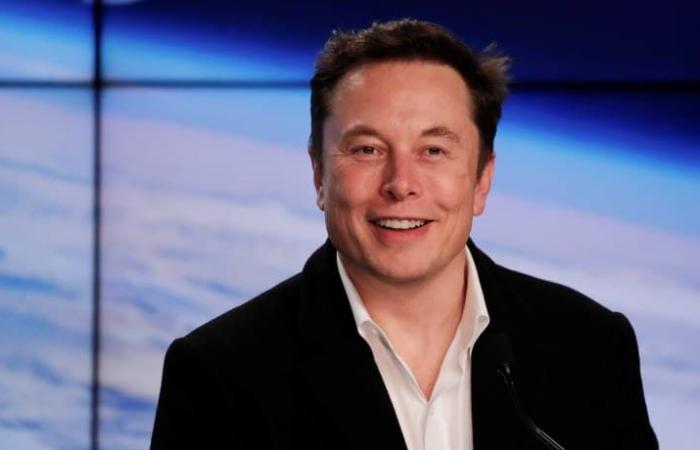Less than two weeks after the results of India’s general elections were announced, with Prime Minister Narendra Modi securing his third consecutive term in office, the debate over electronic voting machines (EVMs) has resurfaced.
Are you looking for signals and alerts from professional traders? Sign up for Invezz Signals™ for FREE. Takes 2 minutes.
This time, Tesla founder Elon Musk finds himself in the crossfire between the ruling BJP and the opposition over the issue.
The EVM debate in Indian politics
Copy link to section
EVMs have long been a point of contention in Indian politics. Opposition leaders often argue that EVMs are susceptible to tampering, calling for a return to paper ballots. While the debate intensified in the run-up to the election, it appeared to die down after the results.
However, the reduction of the BJP to 240 seats, which required alliances to form the government, has reinvigorated discussions, especially among the strengthened opposition alliance, INDIA.
Copy link to section
The controversy began when Musk commented on a post by Robert F. Kennedy Jr., an independent candidate in the US presidential race.
Kennedy highlighted voting irregularities linked to EVMs in Puerto Rico’s primary elections and supported a return to paper ballots to avoid “electronic interference with elections.” Musk responded:
“We should eliminate electronic voting machines. The risk of being hacked by humans or AI, while small, is still too high.”
Former IT minister takes on Musk
Copy link to section
Musk’s statement did not go unnoticed. Rajeev Chandrashekhar, India’s former Minister of State for IT and Electronics, responded quickly. He criticized Musk’s generalization, stating:
“This is a huge generalization statement that implies that no one can build secure digital hardware. Wrong. Elon Musk’s point of view can apply to the United States and other places where they use ordinary computing platforms to build Internet-connected voting machines. But Indian EVMs are custom-designed, secure and isolated from any network or media. No connectivity, Bluetooth, Wi-Fi, Internet. There is no way to enter. Factory programmed controllers that cannot be reprogrammed can be designed and built just like India did. We’d be happy to do a tutorial, Elon.”
Musk’s statement fuels local news
Copy link to section
To add fuel to the fire, an Indian news publication, Mid-Day, reported an incident involving alleged manipulation of an EVM in Maharashtra.
The report stated that a relative of a BJP-allied candidate was caught using a phone connected to the EVM to generate an OTP that unlocked the car.
The candidate won by a slim margin of 48 votes. Although police later denied these claims, the report, along with Musk’s statement, reignited the debate.
Rahul Gandhi’s reaction
Copy link to section
Rahul Gandhi, Congress MP and de facto leader of India’s main opposition party, took the opportunity to criticize the EVM system. Reacting to Musk’s statement and the midday article, Gandhi said:
EVMs in India are a “black box” and no one is allowed to examine them. Serious concerns are being raised about the transparency of our electoral process. Democracy ends up becoming a farce and prone to fraud when institutions lack accountability.
The Indian Supreme Court’s position on EVMs
Copy link to section
In a recent ruling, the Indian Supreme Court affirmed the credibility of EVMs and their integration with VVPATs (Voter Verifiable Paper Audit Trails).
The court rejected petitions seeking 100% verification of votes cast via VVPAT and rejected a return to the ballot paper system, saying: “Blind distrust in the voting process can lead to unwarranted suspicion.”
Implications for the future
Copy link to section
Elon Musk’s comments inadvertently revived a long-standing debate in Indian politics, highlighting global concerns over electronic voting systems.
While India’s Supreme Court and former IT minister Chandrashekhar defend the integrity of India’s EVMs, the opposition continues to question their transparency and reliability.
As India moves forward, the debate over EVMs is likely to persist, reflecting broader concerns about the security and reliability of electronic voting systems around the world.
For Musk, his involvement highlights the influence of global tech leaders on national political debates, even when their remarks are not directly targeted at a specific country’s electoral process.
Elon Musk’s entry into the EVM debate in India shows the intersection of technology and politics on a global scale.
As the conversation continues, it remains to be seen how these discussions will shape the future of voting systems in India and beyond.
The episode highlights the importance of ensuring and maintaining trust in electoral processes, which is crucial to the health and stability of democracies around the world.
This article was translated from English with the help of AI tools, and subsequently proofread by a local translator.
To
Looking for easy-to-follow cryptocurrency, forex and stock trading signals? Simplify your trading process by copying the professional traders on our team. Consistent results. Sign up for Invezz Signals™ today.






